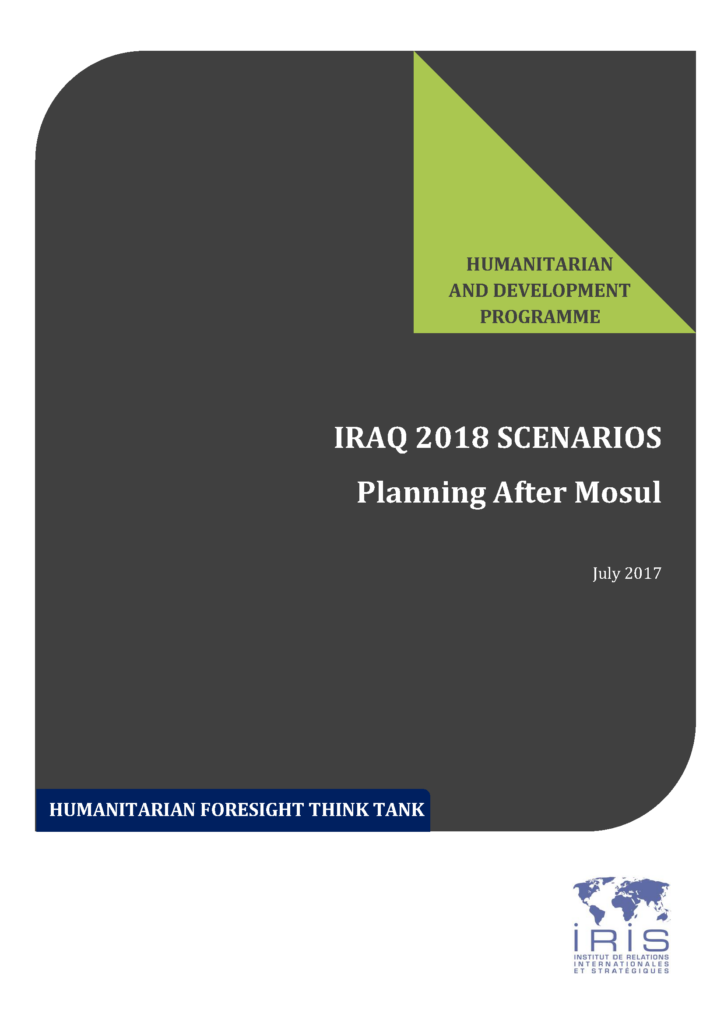Notes / Sécurité humaine
21 juillet 2017
Iraq 2018 Scenarios: Planning after Mosul

After the liberation of Mosul, stakeholders must invest in what comes next. The coalition that united against the Islamic State is deeply divided by enmities and opposing agendas, the ramifications of which—particularly on the humanitarian response, treatment of civilians and post-IS reconstruction—will provide a bellwether as to whether Iraq’s future will be defined by stability, or a lack thereof. The main issues defining the post-Mosul landscape will not be the provision of emergency aid—though crucial for lifesaving—but rather, the interest and capability of relevant actors. Based on the current system, three scenarios are put forth to support strategic planning, providing indicators to monitor their evolution. The capability of state actors to fairly treat Sunni IDPs, prevent the fracturing and localisation of armed groups and forced demographic displacement and establish a truly representative system of governance providing Kurdish, Sunni, Shia and minority communities with political sovereignty. Currently, there is neither basic willingness nor capacity to carry out these policies. A lack of trust in the state, the proliferation of weapons and internal and external forces vying for dominance, and grievances both historical and inchoate will ultimately lead factions across the Iraqi landscape—from the level of individual, to family, to community, and ultimately to ethnic and sectarian group—to take things into their own hands. Rebuilding a collective identity is crucial to rebuilding Mosul or Ninewa. Currently, the ‘collective’ exists only as a point of policy sublimated by splintering actors into infinite, opposing iterations.
This report facilitates strategic decision-making by examining the current military, economic, political and humanitarian context in Mosul and key parts of Iraq, alongside a power-mapping.

